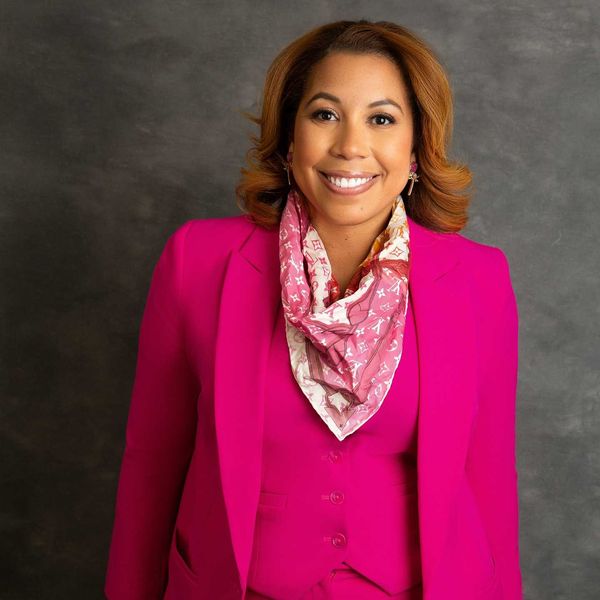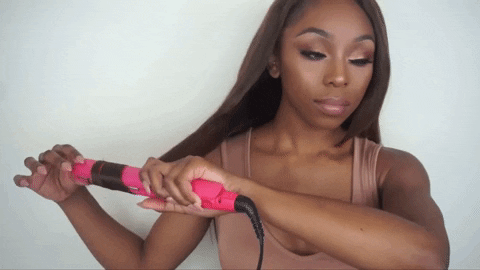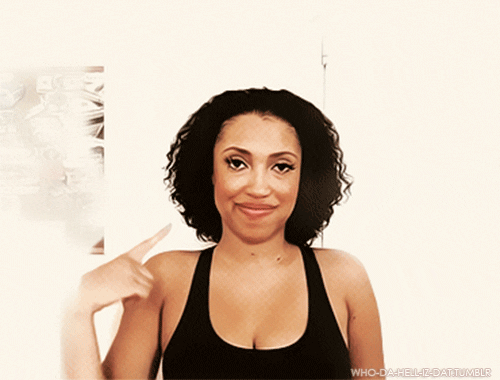
Workers across the nation are pushing back against companies' widespread rollback of remote positions after the pandemic revolutionized the way we work. For nearly three years, workers settled into a new routine that included Zoom calls, comfy clothes, and a short commute from the bed to their workspace. Yet, fast-forward to today, companies are reversing course and pushing the return to the office and on-site meetings, luring workers with promises of the benefits of face time with their boss and employers and sometimes even higher salaries.
A report from LinkedIn shows the number of job openings offering remote work is declining. In March 2022, remote-focused listings accounted for more than 20% of job postings, but that number dropped to 14% in November of that same year.
And still, workers are saying "no” to returning to the office after years of adapting to remote work and proving they can effectively and efficiently complete their jobs from home. Many are refusing to once again get in their cars for long commutes and once again outfit their closets with business wear.
xoNecole spoke to two women about their experience navigating the once remote-friendly environments that are quickly morphing into hybrid or full-time in-office roles.
Dalal
Dalal calls herself a “pandemic cliché.” The journalist left Atlanta with her laptop in hand and returned to her hometown in Chicago at the start of the pandemic, not knowing it would be years before she returned. She moved home to pitch in more, joining the nearly one-fifth of U.S. workers who are caregivers in their families, according to the Rosalynn Carter Institute.
After being at home for nearly two years, she got the call to return to the Atlanta office and found herself reluctant to return. "I started to explore the possibility of staying remote," Dalal shares. "I was immediately offered a job that paid more and was local in Chicago."
Q: Initially, you hesitated about returning to the office but then found an in-office opportunity that on paper, looked too good to pass up and still allowed you to stay in the same city as your family. How did you reconcile going back to the office and the return to the same in-office pressures you had left behind?
A: I lasted three months in that new in-office role before I put in my notice. I actually went back to my previous company and was offered a remote role if I came back as a freelancer. As a freelancer, the pay is lower, there’s less stability, and your salary is solely based on the days you work, and I gave up vacation time. But now, I am able to say “no.” No, when I need to take my mom to a doctor's appointment. No, I don't want to do the 4 a.m. shift. If I had stayed full-time with my steady office job, I wouldn’t have that flexibility.
"Now, I am able to say 'no.' No, when I need to take my mom to a doctor's appointment. No, I don't want to do the 4 a.m. shift. If I had stayed full-time with my steady office job, I wouldn't have that flexibility."
Q: After going from remote to an in-office job and then back to remote, what benefits did you find in remaining WFH?
A: Having that quiet time alone to focus on my position. My quality of work didn’t go down, it went up. Not only can I do this job, but I can do it really well without [the] distractions that come along with the office space where everybody is freaking out about 40 different things. There are people coming to your desk asking for things that are not so immediate, and it gets to the point where you can't really focus on the work.
Working remotely, you can literally turn off your phone, mute team chats, and start to learn to prioritize what is important and what is not.
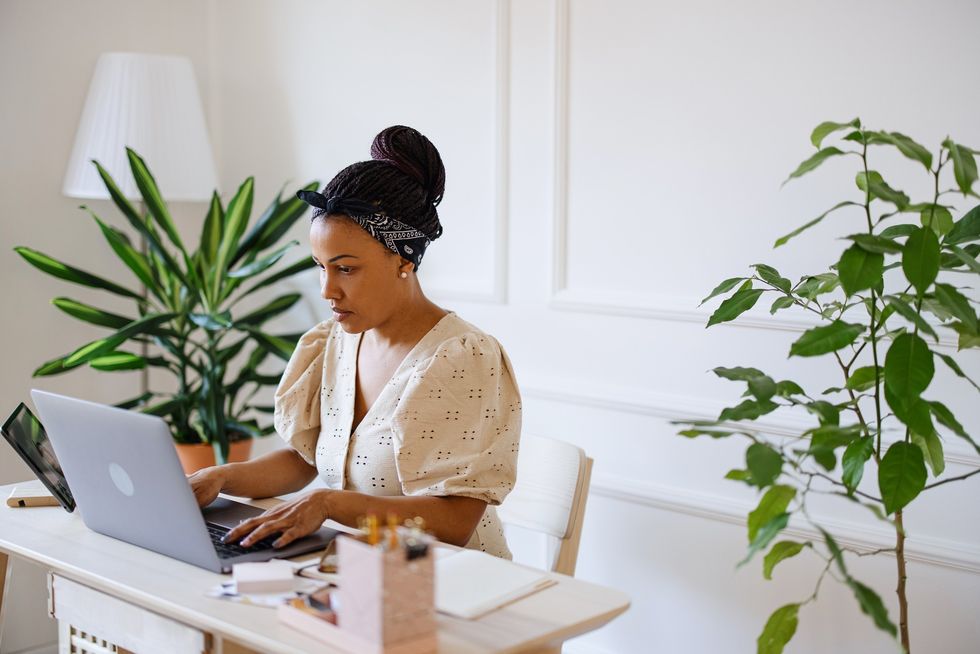
Anchiy/Getty Images
Q: Are there any regrets about losing or missing out on that in-office experience?
A: You always see job opportunities out there. I could be making so much more if I move to New York or back to D.C. But then, I’ll also be paying $2,400 a month in rent, which I'm not doing now. Then there are the other expenses, during the gas crisis, it would have cost me $3-400 a month. Then there are the silly things, like if I get hungry, I just go make myself a sandwich. Whereas in the office, I’d maybe spend $15 a day on lunch just to have that peace of mind away from my colleagues. Also, there’s the added cost of dressing professionally, which is something I really had to worry about in D.C. that I don't have to worry about at home.
Q: In the push to get workers back in the office, is there anything you feel like employers actually lose out on?
A: During the pandemic, people became available all of the time. Let's say my shift starts at 7 in the morning, but if you text me at 6:30 a.m. I still might respond because the lines are more blurred at home and not as concrete as working an 8-hour shift in the office and going home and turning off your work phone.
Q: We’re seeing massive layoffs and a rapid decline in remote roles. How should other workers approach staying firm with their decision to stay remote?
A: In careers that are focused on status, the next big role, or your next big organization, there's always going to be something for you. Opportunities always evolve. You just have to figure out the balance between what's most important at that point in your life. Be confident in the work that you're doing and your abilities, and constantly put yourself out there. Don’t be scared.
Chelsea
Traditionally, tech workers have had a wealth of access to remote roles even before the pandemic. Today, that dynamic stretches across both occupations and demographics across the board. Flexibility is now in demand, and despite the efforts of employers to win employees back into the physical workplace, Americans are keen to remain at home no matter the cost. A study by Goodhire found that 61% of those surveyed would take a pay cut to maintain remote working status.
xoNecole spoke to a tech professional, Chelsea, an operations project manager, on navigating the now-changing landscape for tech workers who once had the upper hand in remote roles.
Q: What’s your experience been like in tech?
A: I've been remote most of my career with heavy travel, so while I'm not in an office, half the month I'm either on site or in a different city. The tech world crumbled during the pandemic, and I got laid off twice. I ended up taking a great role at the end of 2020 that financially was the most I've ever made.
Q: So you’ve finally landed this incredible role. What happened when the call to go back into the office came?
A: I got anxious. Initially, this company sold the job as a remote role, and then a year in, they said we’re going back into the office.
Q: Wow! So they misrepresented the job? How did you handle going into this role thinking you would be remote and then being called into an office you were never supposed to see the inside of?
A: It's manipulative, but I think that it's going to happen more and more as we get further away from the pandemic. After it was announced we would be going back, I got anxious! I was in a unit that called itself innovative and prided itself by saying they would remain remote. But companywide, there was a mandate to return to the office, and that included my unit.
On top of that, I struggled with connecting with my coworkers. They were all a lot older than me, they were all married and just at a different stage of life, and there wasn't much diversity. So even though I was remote and it was a great role, I was miserable thinking about returning to the office with people I did not connect with.
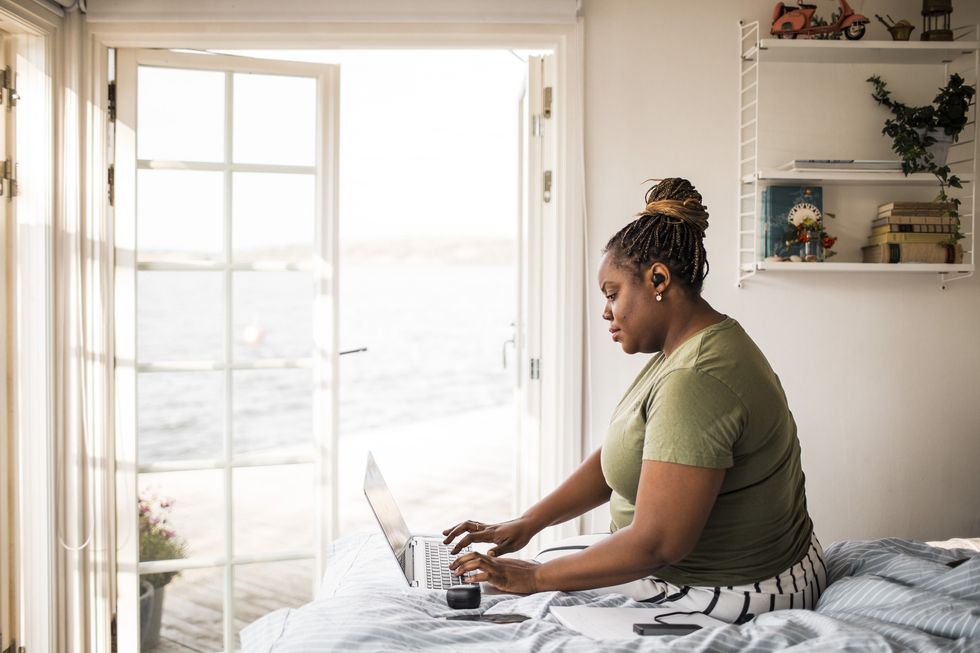
Maskot/Getty Images
Q: How did you handle essentially being told remote work was no longer an option and you would have to go into the office?
A: I made a bold move and reached out to a company I’d connected with previously but had turned down. I asked if they would still be interested in me as a candidate. They didn’t have anything immediately but eventually made an offer.
Q: How did the new offer compare to your current one?
A: Overall, it was a 25% pay cut, thousands less, and still, it was a no-brainer for me. It has been the best decision that I have made. It was still fully remote, included travel, and the people have been amazing. I have the best connections with my coworkers even though we’ve never met in person, we still hop on Zoom and cackle together. Despite the pay cut, I’m happy with my choice.
"It was a 25% pay cut, thousands less, and still, it was a no-brainer for me... Despite the pay cut, I'm happy with my choice."
Q: For many, the idea of a pay cut is taking a step back. What were the conversations you had surrounding your decision?
A: My partner is very big on negotiating and not making lateral moves, so it didn’t make sense to him. But this role is a better fit all around, and even though it's less money, you can’t buy happiness.
Q: You accepted a pay cut to remain remote. Why was that important for you?
A: Flexibility! On my calendar today, I blocked off two hours. You know what it's for? A kindergarten graduation. Going back into the office, I would have had to take PTO or check in and let everyone know where I was going and when I would be back. Now, I just put a block on my calendar that says I’m not available. I can work from out of town or go out of the country, and as long as I have my laptop and my phone, I can still get my work done.
On top of that, it’s the realization that eight hours sitting at a desk is not the most productive for me. Sometimes I’m more productive after the traditional hours of 9-5, and being remote gives me that flexibility.
Q: Like so many others, you found yourself at a company that walked back their initial remote policy. Has this new company expressed that they, too, will go that route?
A: We’re a national company with locations across the country, and everyone, including leadership and central team members, work remotely. The only way I go into an office now is when it’s my choice, and I’ve been very frank with my boss that if it was a set requirement to come into the office, I would find another job. I don’t ever see my company going back in the office, and it’s a plus because it allows for a wider pool of talent, and we all bring different ideas and experiences to the team.
Q: What advice can you offer on having the confidence to make choices that not everyone agrees with when it comes to your career and staying in a remote role?
A: I would say, “Don't focus on one single career.” Every kind of career path has remote work, not just tech. Ultimately don't be afraid to leave.
Let’s make things inbox official! Sign up for the xoNecole newsletter for daily love, wellness, career, and exclusive content delivered straight to your inbox.
Featured image by Olena Kovalova/Getty Images
- These Are The Top Companies For Diversity—And They're Remote-Friendly, Too ›
- 6 Legit Work-From-Home Jobs That Actually Pay Well ›
- These Six-Figure Jobs Are In-Demand, Full-Time & Fully Remote ›
- How To Work Remotely While Traveling The World ›
- Going Back To The Office After Working Remote? Here's How To Cope ›
- These Are The Jobs Set To Have High Salaries In 2025 - xoNecole ›
This Is How To Keep 'Holiday Season Stress' From Infecting Your Relationship
Hmph. Maybe it’s just me, but it seems like there is something really weird happening in the fall season air (because winter doesn’t officially begin until December 21) that cuddle season is in full swing while break-up season is as well. In fact, did you know that break-ups are so popular during the holiday season that December 11 is deemed Break-Up Day?
The reasons why relationships shift around this time vary; however, I did both roll my eyes and chuckle when I read that a very popular one is because it’s an easy way to get out of getting one’s significant other a Christmas present. SMDH.
Anyway, I personally think that the less shallow folks out here may contemplate calling things “quits” or they at least distance themselves a bit from their partner (and what I’m referring to is serious relationships) due to all of the stress and strain that oftentimes comes with the holidays whether it be financial, familial, due to their tight schedules or something else.
Listen, I would hate for you and your man to miss the fun and happiness of experiencing this time of year, all because you are so overwhelmed or irritated that you can’t really enjoy it. That’s why I have a few practical tips for how to avoid allowing the typical holiday season stress from INFECTING your relationship.
Manage Your Expectations
 Giphy
GiphyUnmanaged expectations. If there is a main reason why the holiday season tends to be so stress-filled for so many people, I’d bet good money that this is the cause. And when you’re in a long-term relationship, expectations can manifest themselves in all sorts of cryptic and/or unexpected ways. You might have relatives who assume that you are going to be with them for Thanksgiving or Christmas when you have other plans in mind. You might be thinking that you are going to spend one amount for presents while your man is thinking something totally different. When it comes to scheduling, your signals may be crossed.
And you know what? To all of these scenarios, this is where clear and consistent communication come in. Don’t assume anything. Don’t dictate anything either. From now until New Year’s, mutually decide to check in once a week, just to make sure that you are both on the same page as it relates to the holidays and what you both are thinking will come along with it. The less blindsided you both feel, the less stressed out you will be. Trust me on this.
Set (and Keep) a Budget
 Giphy
GiphyOkay, so I read that last year, 36 percent of Americans incurred some type of holiday-related debt. Hmph. Last year, there was still some sense of normalcy in this country, chile, so I can only imagine what finances are gonna look like over the next several weeks. That said, since I don’t know a lot of people who don’t find being broke stressful, make sure that you and your bae set a budget and then stick to it this year — no ifs, ands or buts.
Because really, y’all — it doesn’t make sense to deplete savings and/or max out credit cards for a few days of giggles only to be damn near losing your mind because you don’t know how to make ends meet come Dr. Martin Luther King, Jr. Day.
And by the way, this tip doesn’t just speak to things like food and gifts; I also mean travel. If it doesn’t make a ton of sense (or cents) to be all over the place this year — DON’T BE.
Keep Matthew 5:37 at the Forefront
 Giphy
GiphyIf off the top of your head, you don’t know what Matthew 5:37 says, no worries, here ya go: “But let your ‘Yes’ be ‘Yes,’ and your ‘No,’ ‘No.’ For whatever is more than these is from the evil one.” That verse right there? Oh, it’s a boundaries lifesaver! I say that because do you see “maybe” or “I’ll think about it” in there? Nope. LOL. It says that you should tell people “yes” or “no” and leave it at that — and that complements Anne Lamott’s quote, “’No’ is a complete sentence” impeccably well. Yeah, you’ve got to remember that anything beyond a yes or no to a request is privileged information; you don’t owe anyone details or an explanation.
Besides, if you are really honest with yourself, when someone asks you something and you give a “Umm, let me think about it” kind of reply, more times than not, you already know what your answer is going to be — so why not let you both off of the hook? Give your response. Commit to that. And let everyone (including yourself) get on with their lives and schedules.
I promise you that when it comes to those holiday parties, you are pissing more folks off by not RSVP’ing or doing so and not showing up than just saying, “Thank you but not this year” off the rip.
Remember That Your Personal Space Is Privilege Not a Right
 Giphy
GiphyA friend of mine recently bought a new house and invited me over to come see it. He’s a single man with no children, so as I was taking in all of the space that he had, especially as I walked through his finished basement, I joked about relatives coming to live with him. “Hell no” and “absolutely not” were pretty much his immediate responses as he went on to say that some folks even had the nerve to be offended when he told them that he had no intentions on taking DNA in.
Ain’t it wild how people think that your stuff is their right? And yes, that brings me to my next point. Your home is your sanctuary space. If you want to host folks this year — cool. If not, ALSO COOL. Please don’t let folks (family included) guilt you into how they want you to act or even into what they would do if the shoe was on the other foot. You are not them — and as one of my favorite quotes states, “If two people were exactly alike, one of them would be unnecessary.” (A man by the name Larry Dixon said that.)
Hell, my friends? They know that I am good for sending them random things that they need or even want all throughout the year. Coming over to hang out at my pace, though. Uh-uh. Chalk it up to being a card-carrying member of the ambivert club yet I like keeping my living space personal — and I sleep like a baby, each and every night, for feeling that way.
Always remember that your space, your time, your resources, your energy and shoot, yourself period (including your relationship), are all things that are your own. You get to choose how, when and why you want to share them. The holiday season is certainly no exception.
Cultivate Some “You Two Only” Traditions
 Giphy
GiphyIt’s not uncommon for some couples to hit me up after the holiday season to “detox.” Sometimes it’s due to the financial drama (and sometimes trauma) that they experienced. Sometimes it’s because they allowed their relatives (especially in-laws) to get more into their personal business than they should’ve. More than anything, though, it tends to be because they didn’t get enough quality time together and so ended up feeling “disconnected.”
Please don’t let that happen. Listen, I’m not even a holidays kind of woman and yet, I will absolutely sit myself down with some hot chocolate and chocolate chip cookies to enjoy a Hallmark holiday film or two. Aside from the fact that most of them are lighthearted and sweet, I also like that they usually focus on couples loving on each other amidst all of the holiday beauty and ambiance — which is something that all couples should set aside some time to do.
Maybe it’s a vacation. Maybe it’s a staycation. Or maybe it’s my personal favorite, A SEXCATION. Whether it’s for a few days, the weekend or even overnight — don’t you let the holidays go by without setting aside time for you and your man to celebrate one another. Don’t you dare (check out “Are You Ready To Have Some Very Merry 'Christmas Sex'?”).
GET. SOME. REST.
 Giphy
GiphyI once read that 8 out of 10 people get stressed out over the holidays and 3 out of 10 lose sleep during to it — and when you’re stress-filled and sleep-deprived, that can absolutely lead to hypersensitivity, making mountains out of molehills and even not being in the mood for sex.
Your relationship can’t afford to go through any of this, so definitely make sure to prioritize rest. I don’t care how unrealistic it might seem during this time, sleep should never be seen as a luxury; it will always and forever be a great necessity.
That said, try to get no less than six hours of shut-eye in (check out “6 Fascinating Ways Sex And Sleep Definitely Go Hand In Hand”) and even ask your bae to take a nap with you sometimes (check out “Wanna Have Some Next-Level Sex? Take A Nap, Sis.”). Not only will sleep help to restore your mind, body and spirit but, when it’s with your partner, it’s an act of intimacy that can make you both feel super connected, even in the midst of what might feel like chaos.
___
Holiday season stress is real. Still, never give it the permission or power to throw your relationship off. Put you and your man first and let the holidays be what they are gonna be, chile.
Let’s make things inbox official! Sign up for the xoNecole newsletter for love, wellness, career, and exclusive content delivered straight to your inbox.
Featured image by Shutterstock
It’s probably been over the past 2-3 years that I’ve become hyper-focused when it comes to applying certain chemical exfoliants known as acids to my skin. Personally, I’ve come to really appreciate ones like mandelic acid and hyaluronic acid because they have a way of softening my skin, brightening it up and really evening out my complexion overall.
In fact, on my skin, they have been so effective that they have caused me to wonder what would happen if I applied some of them to my hair too — and boy, was it an experiment that paid off big time!
If, while on your continual journey to get the best out of your own tresses, you’d like to learn how to get them healthier than it’s ever been, I’ve got seven acids that are typically known for skin use that can be just as beneficial to your hair as well.
1. Salicylic Acid
When it comes to your skin, salicylic acid is beta-hydroxy acid that is great for your skin if you’re looking for something that will exfoliate it, clear out your pores and dissolve dead skin cells. In fact, this is why it’s an acid that is quite popular when it comes to treating acne.
Your hair will enjoy salicylic acid because, if you’re looking to remove product build-up, you want to soothe an itchy or irritated scalp or you’ve got some dandruff flakes that are totally driving you up the wall, salicylic acid has the ability to treat all of this. Either purchasing a shampoo that contains this ingredient or adding it to your favorite scalp scrub is probably the most effective way to get the most out of it.
Just make sure that if your scalp is sensitive or dry that you approach with caution. In these instances, it could end up irritating your scalp more than helping it out, so use a very little bit in the beginning to make sure that it vibes with you.
2. Lactic Acid
Lactic acid is an alpha hydroxy acid that can help to even out your skin tone as well as slow down the signs of aging. The properties in it help to do this by reducing hyperpigmentation and boosting collagen production in your skin as well as keeping it hydrated.
Why is it great for your locks? For one thing, lactic acid is considered to be a humectant. This means that it pulls water from the air so that your hair is able to remain moisturized.
Another thing that makes it a winner is the fact that lactic acid breaks down dead skin cells on your scalp (so that your hair follicles are able to flourish), it can help to soften and detangle your hair (making it a helpful addition on your wash days) and it also helps to protect your tresses from heat styling tools and UV damage. Applying a hair rinse that’s made up of part lactic acid and part water can work wonderfully (so long as you apply it once a month, tops; more than that might be too “intense” for your hair strands).
3. Glycolic Acid
Glycolic acid is a water-soluble alpha hydroxy acid that is actually made from sugar. Your skin will adore it because it smooths the appearance of fine lines and wrinkles, improves the texture of your skin, gently exfoliates, clears your pores and brightens up your complexion overall.
The reasons why you should consider this acid for your hair is because it helps to keep your scalp youthful (and yes, there is such a thing; check out “Your Scalp Ages Six Times Faster Than Your Face. Why It Matters.”), removes excess sebum (that could be clogging up your hair follicles) and it helps to keep your hair moisturized. Your best bet here is to make it a part of your pre-shampooing ritual.
4. Succinic Acid
Succinic acid is an acid that is made from sugar cane and contains antimicrobial and anti-inflammatory properties. Although it doesn’t exactly exfoliate (like many of these other acids do), it can still be beneficial to your skin when it comes to reducing the kind of irritation that is associated with eczema, decreasing the bacteria that leads to breakouts and keeping your skin pretty hydrated.
As far as your hair goes, this is an acid that is worth trying out because it helps to balance the sebum that is on your scalp, remove dead skin and product build-up that can irritate your scalp and clog your hair follicles and, succinic acid is also beneficial when it comes to reducing dandruff and helping to prevent hair loss. Most people tend to apply this as a serum.
5. Hyaluronic Acid
I’ve officially sung the praises of hyaluronic acid on this platform before. One example is via the article, “Why Your Skin, Hair, And Nails Need Hyaluronic Acid Like...Yesterday.” On the skin tip, hyaluronic acid is great because it deeply hydrates your skin, contains anti-aging properties and can even bring relief to vaginal (including vulvar) dryness.
Your hair will adore this particular acid because it aids moisture to it (including your hair follicles), will help to improve your hair’s texture and it also soothes scalp dryness, nurtures the cuticles of your tresses and decreases frizz. Using a serum rich in this acid as a pre-poo or as a leave-in conditioner is recommended.
6. Azelaic Acid
If you’ve never heard of azelaic acid before, this is your lucky day. It’s a dicarboxylic acid that, when it comes to skincare (and hair care) products, is usually synthetic. Anyway, if you are looking for a way to reduce inflammation, even skin tone after a breakout or if you want to use an exfoliant that will improve the texture of your skin overtime, you might want to give this acid a shot.
This one makes the list as far as your hair is concerned because, if achieving more inches is your current focus, azelaic acid might come in handy. That’s because it is able to strengthen your hair, thicken your strands and also stimulate hair growth from within your hair follicles.
7. Glutamic Acid
Glutamic acid is actually a type of amino acid. Skin-wise, it’s great for deeply hydrating your skin as well as protecting it from pollutants and damaging UV rays. Also, if you’re looking for an acid that treats skin dryness or “tightness,” this could be the answer to your prayers.
Since glutamic acid is also considered to be a humectant, it’s another acid that can moisturize your hair. As a result, it can decrease breakage while helping your hair to feel smooth and look shiny.
BONUS: Amino Acids
Speaking of amino acids and hair, please try to keep some amino acids in your diet at all times. The reason why is because, since your hair is made up of mostly protein (keratin, to be exact), amino acids are pretty darn effective when it comes to helping you to maintain the overall health and well-being of your hair.
Ones to prioritize include proline (it boosts collagen so that your hair strands can maintain flexibility); arginine (it increases blood flow to your hair follicles so that they can receive the nutrients that they need); cysteine (it helps to keep your hair follicles healthy); alanine (it helps your system to produce more collagen), and isoleucine (it strengthens the tissues that help to make up your hair strands). All of these are available in supplement form or you can use Google to see which foods contain them.
___
Although it might initially seem odd to apply acid to your hair, as you can see, certain ones will work miracles for it. So, test them out to see which one tickles your fancy.
Hell, since they work for your skin as well — it’s a two-for-one deal that is worth every penny!
Let’s make things inbox official! Sign up for the xoNecole newsletter for love, wellness, career, and exclusive content delivered straight to your inbox.
Featured image by Shutterstock







